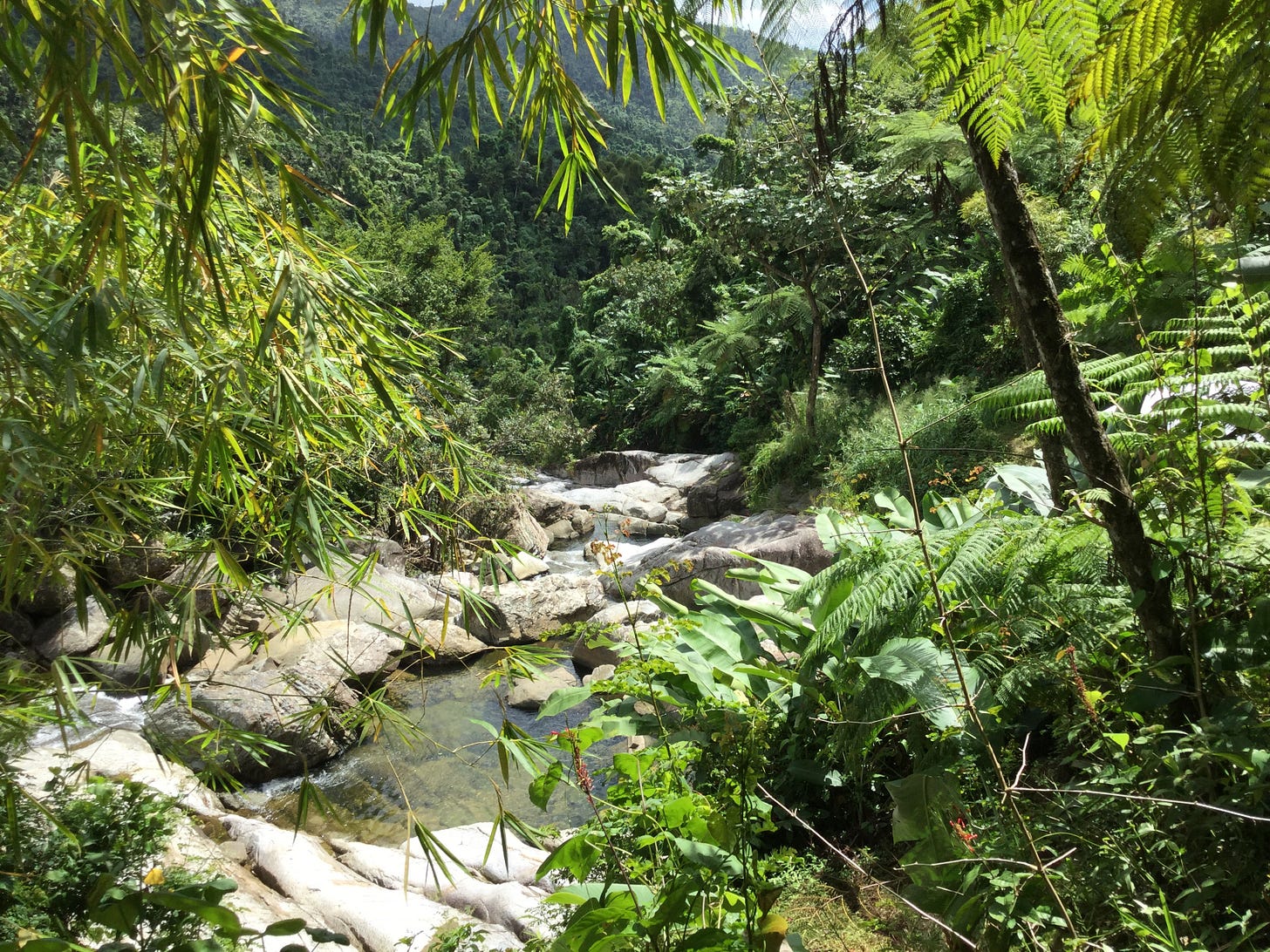In Case of Emergencies

The Risk of Being Incommunicado

Rio Cubuy in El Yunque Rainforest
A few years ago, I was camping in northern Florida with some friends. I usually take time spent in nature as an automatic cell phone-free break, turning off my phone altogether if there happens to be service wherever I am. Of course, I let a few loved ones know where I am in case of emergencies, leave a hiking route or float plan with a ranger when I’m heading into the backcountry.
Well, this particular weekend, my friends and I were camping at some freshwater springs (link), a magical place if you’ve never been. When one of my friends insisted on leaving the campground in search of cell phone signal so she could update her boyfriend on our whereabouts, I decided to join her—and it’s a lucky thing I did. When I turned on my phone, it buzzed frantically with an onslaught of messages. I dialed my voicemail and listened as my mother, my sister, and several strangers gave me the horrible news that my cat had been hit by a car and was in critical condition. The cat had been implanted with a chip containing my phone number and my mother’s number as a back-up.
For whatever reason, I turned on my phone that day instead of leaving it off all weekend as I usually do during these circumstances, and as a result, I was able to drive across the state and say goodbye to my beloved feline friend.
This weekend, I had a similar experience. My husband and I spent a night in the rainforest, and I gleefully powered down my phone as we wound our way up the mountain roads towards our getaway. I was grateful to silence the digital world for 24 hours and tune into the natural world in all its glory. The rainforest is one of my happy places; I delight in the tangle of greenery, the symphony of coqui frogs and rushing rivers, the feel of fertile mud beneath my feet. We spent the weekend exploring the Rio Cubuy and marveling at the constantly changing palette of greens as rain and sunshine cycled through the valley.
On our way back down the mountain towards home, I switched my phone back on. I wanted to let a friend know that we were running late for a dinner date, but I was bombarded with a series of anxiety-inducing text messages from my family. I could tell that something was not right, but it took me a moment to piece together what was the matter. They’d been trying to reach us for the better part of the day; I haven’t had the heart to check my voicemail.
This weekend, we spent a lot of time talking about history and the movement of people across long distances in the time before air travel. A ship might be becalmed at sea for several weeks, delayed on their journey, or taken over by pirates. There was no way to track hurricanes up until the mid-nineties, and entire towns could be wiped out when mega-storms hit their shores. I love reading about early explorers navigating treacherous tropical landscapes in search of rare orchids or medicinal plant species. The journey of how breadfruit came from Polynesia to the Caribbean, for example, was arduous and circuitous, with many pitfalls along the way.
Back then, everything traveled slowly, including news, which meant that travelers returning home from a long journey might learn that a family member had died while they were away. Distant family members couldn’t be kept up to date on births and deaths.
I think back to my parent’s time, when they were young and traveling the world. While she was traveling through Europe, my mother sent news to her mother back in the States via air mail, letters written in long-hand that might take weeks—or longer—to reach their recipient. As a vagabonding sailor, I wonder how often my father was able to update his parents on his whereabouts. I’m sure there were whole months during which my grandmother had only the vaguest idea of where her son was—a continent, or an ocean, but no details beyond that. In contrast, my father was able to communicate with us—his wife and daughters—via satellite while he was on long blue water sailing trips.
I’m grateful that I was only a few hours late in learning the bad news that has rocked our family. Today, I’m able to board a plane so that I can be beside my loved ones within a few hours.
Terrible things do sometimes happen, and of course we want to be informed. Still, I don’t believe that waiting for the possibility of bad news is a reason to stay tethered to our phones.
Tip of the Week
To limit time spent on your smartphone, buy a really small data plan. This will force you to be judicious with your usage, or, if you’re strange like me, rejoice when your data runs out.
Digital Health Around the Web
Manoush Zamorodi challenges Cal Newport about his beliefs around digital minimalism.
A writer enjoys an uncluttered mind when she takes a social media-free day.
These parents want to get their kid ahead of the game by giving them as much screen time as possible!
If you enjoy this newsletter, please forward to a friend.
Thanks for reading!



